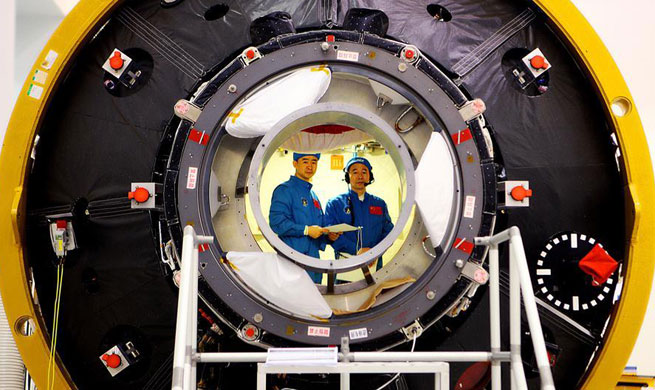DAVOS, Switzerland, Jan. 23 (Xinhua) -- The speed of technological change is accelerating convenience at the expense of trust, argued a stellar panel of participants on the first day of the World Economic Forum (WEF) annual meeting on Tuesday.
The Kalamazoo shootings of February 2016, when Uber driver Jason Dalton shot six people dead, raised questions about whether "convenience is trumping trust", said Rachel Botsman, visiting academic and Lecturer at the Said Business School, University of Oxford.
According to Dara Khosrowshahi, CEO of Uber Technologies, Uber does use data to create safer experiences, for example, the ride-sharing service will block ride requests from areas where carjacking is a risk at certain times of day in certain countries.
"Ratings are real," said Khosrowshahi, "but ultimately, a 4.9 is a rating of how they drive, not the state of their mind."
The deeper issue at stake is whether the big tech companies are doing enough to build trust in their values and intentions.
"Trust has to be the highest value in our company," argued Marc R. Benioff, chairman and CEO of Salesforce, adding that "if anything trumps trust, we're in trouble".
Amazon's Alexa now has a built-in camera that can rate what a person is wearing, recommend upgrades to their wardrobe and order with a single click. Is it right that technology not only does things for us, but also decides things for us?
Online retailers such as Amazon now gather so much data that they know more about users than the users themselves, raising serious questions about the privacy of that data and who has the authority to use and monetize it.
According to Benioff, the signs are pointing towards more regulation.
"When CEOs don't take responsibility, then governments have no choice but to step in," he said.
Benioff likened the accelerating power of today's technology to the complex financial products of a decade ago. Regulators weren't paying sufficient attention then, and the headlong rush into mortgage-backed derivatives and the like created the worst financial crash for generations.
"Regulators need to adapt much faster to the new reality," he stressed.
There is a political angle to this argument too, said Sir Martin Sorrell, CEO of British company WPP, one of the world's largest advertising companies, adding that the spread of artificial intelligence, driverless cars and stores with no workers or check-outs is making ordinary people nervous, because their job will be in danger.
"With the tech space increasingly dominated by a handful of huge players, such as Apple, Google and Facebook, regulation of data sharing, privacy and responsibility for platform content is an increasingly urgent issue," Sorrell argued.
The World Economic Forum's 48th Annual Meeting is taking place on Jan. 23-26 in Davos-Klosters, Switzerland, with more than 3,000 leaders from around the world expecting to attend some 400 discussions.

















